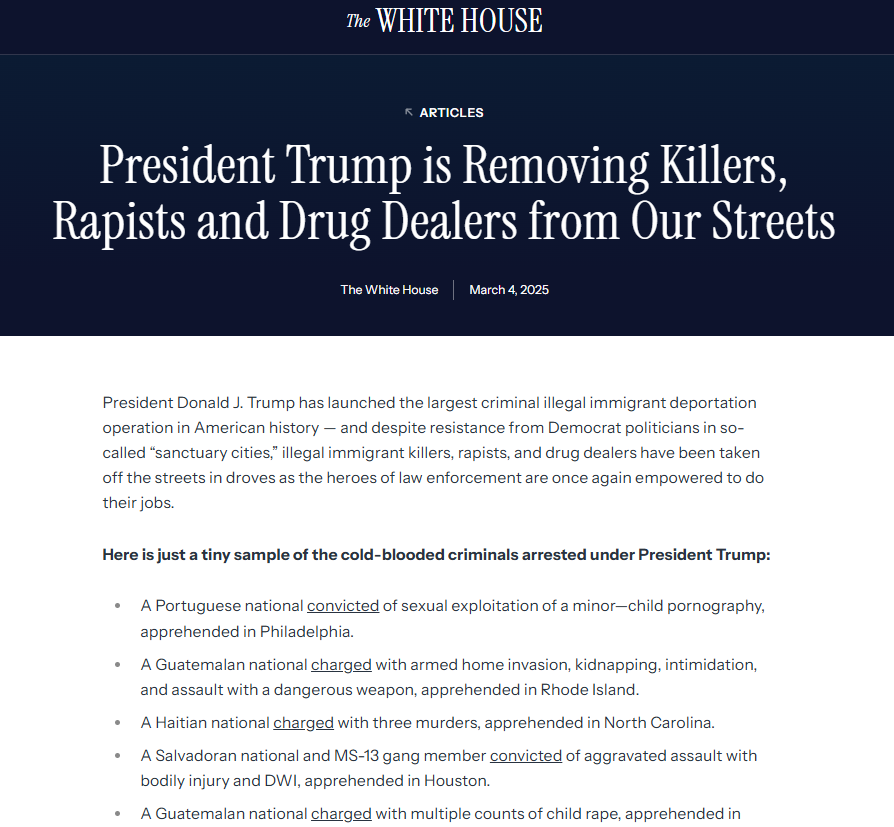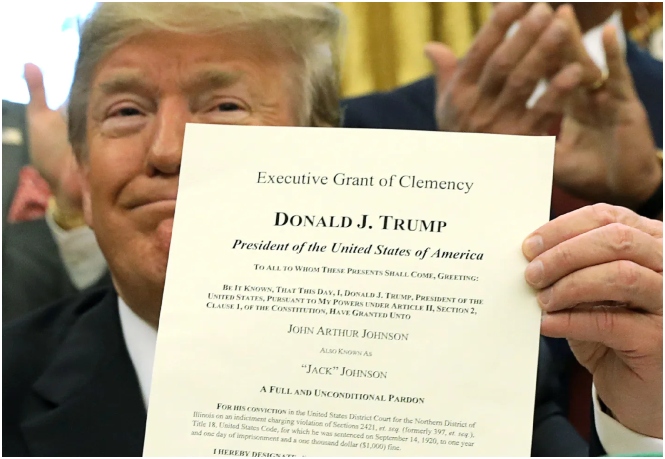Liz Oyer, a former U.S. Pardon Attorney under the Department of Justice, is publicly criticizing what she calls a dangerous double standard in Donald Trump’s immigration and public safety policies.
In a viral Instagram post and accompanying video, Oyer accused the Trump administration of misleading the public by boasting about deporting violent criminals while simultaneously pardoning individuals convicted of or charged with serious violent crimes — including sexual assault, domestic violence, and homicide.
“I’m sick of the videos the White House is putting out congratulating itself on deporting the most violent criminals,” Oyer wrote in her post. “The public safety rhetoric does not hold up to the facts. Here are some facts. Just a warning, they are upsetting.”
Oyer then listed a series of individuals who, she says, received clemency from Trump — in some cases on his first day in office — only to reoffend or be accused of new crimes after their release.

Among the individuals Oyer named:
- Theodore Middendorf, a registered sex offender now reportedly back in prison for predatory sexual assault of a 7-year-old.
- Andrew Taki, currently facing charges for allegedly soliciting a minor for sex online.
- David Daniel, accused of engaging in sexual acts with two children and photographing them.
- Emily Hernandez, serving a sentence for fatally striking a mother of two while driving drunk.
- Peter Schwartz, with 38 prior convictions, including multiple violent assaults, and who participated in the January 6 Capitol riot.
- Daniel Ball, who has prior convictions for domestic violence and assaulting law enforcement officers.
- Casey Hopkins, previously convicted of forcible rape.
- Benjamin Martin, convicted of battery against a 14-year-old and his girlfriend.
- Edward Hemingway, convicted of sexual battery and criminal confinement.
- Edward Richmond Jr., a former U.S. Army soldier court-martialed for shooting an Iraqi civilian in the head while he was handcuffed.
Oyer ended her video with a direct challenge to Trump and South Dakota Governor Kristi Noem, both of whom have made public safety and immigration enforcement key themes of their messaging.
“So those are facts. And I’d like to hear what Donald Trump and Kristi Noem have to say about them,” she said.
Legal and Political Implications
The post has reignited criticism of Trump’s criminal justice record and use of presidential clemency powers. While Trump has previously drawn praise for pardoning individuals sentenced under harsh federal drug laws, Oyer’s video focuses on cases involving violence and sexual offenses, which she argues undercut the administration’s claims of protecting public safety.
Legal scholars have pointed out that presidential clemency is among the broadest executive powers under Article II of the U.S. Constitution. However, critics argue that Trump’s use of this power often lacked transparency and leaned heavily toward political allies and high-profile cases.
“Pardoning is a powerful tool, but it becomes dangerous when wielded without regard to public safety or justice,” said one former federal prosecutor who reviewed Oyer’s video.
A Stark Contrast in Rhetoric
Trump has repeatedly taken a tough-on-crime stance, recently highlighting ICE operations that target undocumented immigrants accused of violent crimes. Oyer’s post suggests that these public safety talking points ignore a contradictory record of pardoning individuals with histories of similar or worse conduct.
Her post comes amid growing concern about political messaging related to criminal justice and immigration.
About Liz Oyer
Liz Oyer served as the Pardon Attorney from 2022 to 2024, managing thousands of clemency petitions. Prior to that, she worked as an Assistant Federal Public Defender in Washington, D.C. Her tenure at the DOJ was marked by calls for increased transparency and fairness in the clemency process.
Editor’s Note: This story includes references to allegations and criminal convictions involving disturbing conduct. The individuals named by Oyer are cited in the context of a public policy critique of presidential pardons. Legal outcomes may vary, and all defendants are presumed innocent until proven guilty in a court of law.

